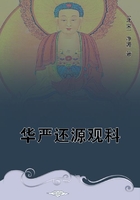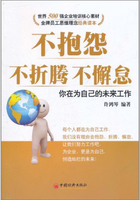For two centuries the greatest thinkers and the course of general opinion have been striving for liberty in different ways, for the emancipation of individuals, and the self-government of communities, and the rights of masses. This liberal creed has been, on the whole, an eminently idealist one, assuming the easy perfectibility of human nature, the sound common sense of the many, the regulating influence of consciousness on instinct, the immense value of high political aspirations for the regeneration of mankind. In every single attempt at realising its high-flying hopes the brutal side of human nature has made itself felt very effectually, and has become all the more conspicuous just by reason of the ironical contrast between aims and means. But the movement as a whole was certainly an idealist one, not only in the eighteenth but even in the nineteenth century, and the necessary repressive tendency appeared in close alliance with officialism, with unthinking tradition, and with the egotism of classes and individuals. Many events have contributed of late years to raise a current of independent thought which has gone far in criticising and stemming back liberal doctrines, if not in suppressing them. The brilliant achievements of historical monarchy in Germany, the ridiculous misery to which France has been reduced by conceited and impotent politicians, the excesses of terrorist nihilism in Russia, the growing sense of a coming struggle on questions of radical reform -- all these facts have worked together to generate a feeling which is far from being propitious to liberal doctrines. Socialism itself has been contributing to it directly by laying an emphatic stress on the conditions of material existence, and treating political life merely as subordinate to economic aims. In England the repressive tendency has been felt less than on the Continent, but even here some of the foremost men in the country are beginning, in consequence of social well-known events, to ask themselves:
Whither are we drifting? The book which best illustrates the new direction of thought is probably Taine's 'Origines de la France Contemporaine.' It is highly characteristic, both in its literary connexion with the profound and melancholy liberalism of Tocqueville, and in its almost savage onslaught on revolutionary legend and doctrine.
In the field of historical research the fermentation of political thought of which I have been speaking has been powerfully seconded by a growing distrust among scholars for preconceived theories, and by the wish to reconsider solutions which had been too easily taken for granted. The combined action of these forces has been curiously experienced in the particular subject of our study. The Germanist school had held very high the principle of individual liberty, had tried to connect it with the Teutonic element in history, had explained its working in the society described by Tacitus, and had regretfully followed its decay in later times. For the representatives of the New School this 'original Teutonic freedom' has entirely lost its significance, and they regard the process of social development as starting with the domination of the few and the serfdom of the many. The votaries of the free village community have been studying with interest epochs and ethnographical variations unacquainted with the economic individualism of modern Europe, they have been attentive in tracing out even the secondary details of the agrarian associations which have directed the husbandry of so many centuries, but the New School subordinates communal practice to private property and connects it with serfdom. We may already notice the new tendency in Inamasternegg's Wirthschaftsgeschichte: he enters the lists against Maurer, denies that the Mark ever had anything to do with political work, reduces its influence on husbandry, and enhances that of great property. The most remarkable of French medievalists -- Fustel de Coulanges -- has been fighting all along against the Teutonic village community, and for an early development of private property in connexion with Roman influence. English scholarship has to reckon with similar views in Seebohm's well-known work.
Let us recall to mind the chief points of his theory. The village community of medieval England is founded on the equality of the holdings in the open fields of the village. The normal bolding of a peasant family is not only equal in each separate village, but it is substantially the same all over England.
Variations there are, but in most cases by far it consists of the virgate of thirty acres, which makes the fourth part of the hide of a hundred and twenty acres, because the peasant holder owns only the fourth part of the ploughteam of eight oxen corresponding to the hide. The holders of virgates or yardlands are not the only people in the village; their neighbours may have more or less land, but there are not many classes as a rule, all the people in the same class are equalised, and the virgate remains the chief manifestation of the system. It is plain that such equality could be maintained only on the principle that each plot was a unit which was neither to be divided nor thrown together with other plots. Why did such a system spread all over Europe? It could not develop out of a free village community, as has been commonly supposed, because the Germanic law regulating free land does not prevent its being divided; indeed, where this law applies, holdings get broken up into irregular plots. If the system does not form itself out of Germanic elements, it must come from Roman influence; one has only the choice between the two as to facts which prevail everywhere in Western Europe.















